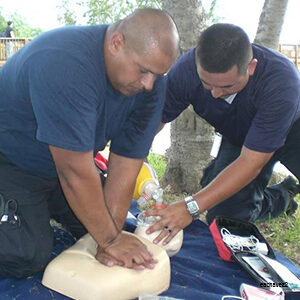PoolSafe
Swimming is fun and healthy. Let's keep it that way.
Contact Us
Campaign Overview
Pool Safe is a prevention campaign that is the perfect complement to warmer weather in the Inland Northwest. It aims to reduce drowning and illnesses associated with public and private pools.
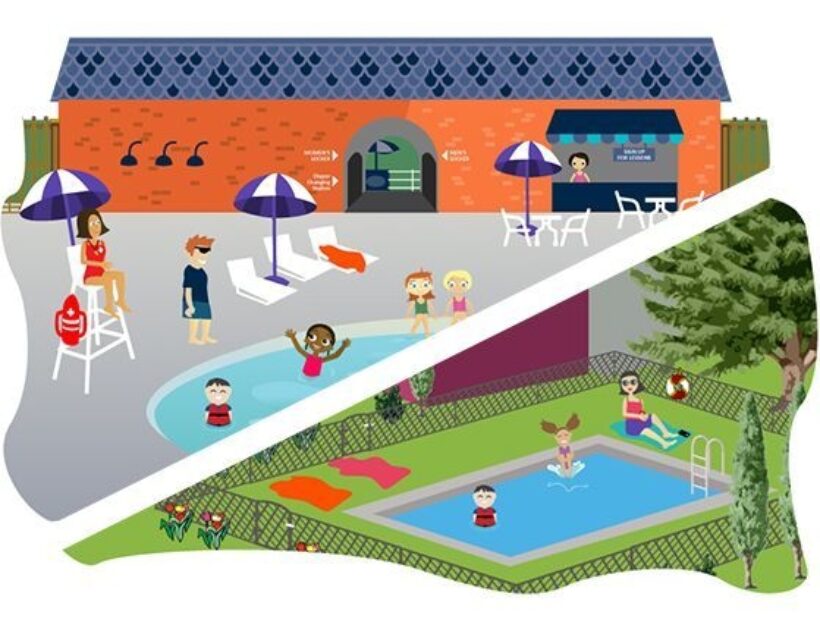
Drowning Prevention
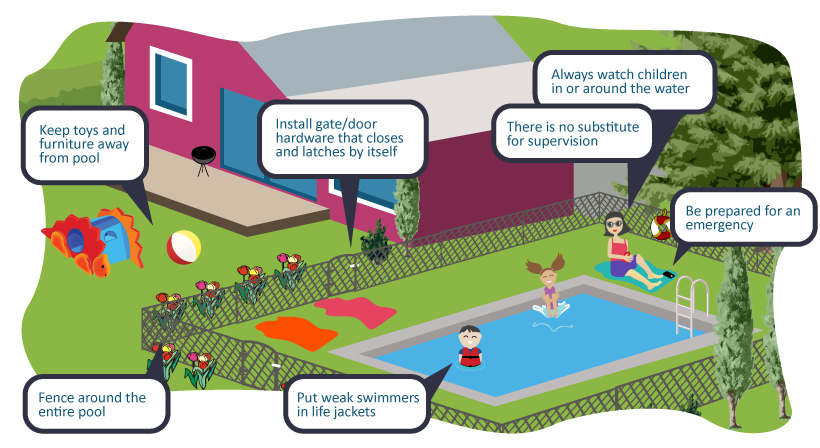
Private Pool
Waterproof you and your family from drowning risks. Here's how to keep everyone safe around your home pool.
Drowning is often swift, silent and occurs in as little as 30 seconds. The campaign emphasizes combining safety measures to prevent drownings. This is called adding "layers of protection." Focus on always watching children in or around water, while also ensuring there are barriers and alarms installed for additional protection. Enroll children in swimming lessons early and put weak swimmers in life jackets. Always be prepared for an emergency.
To view the related fact sheet, click here.
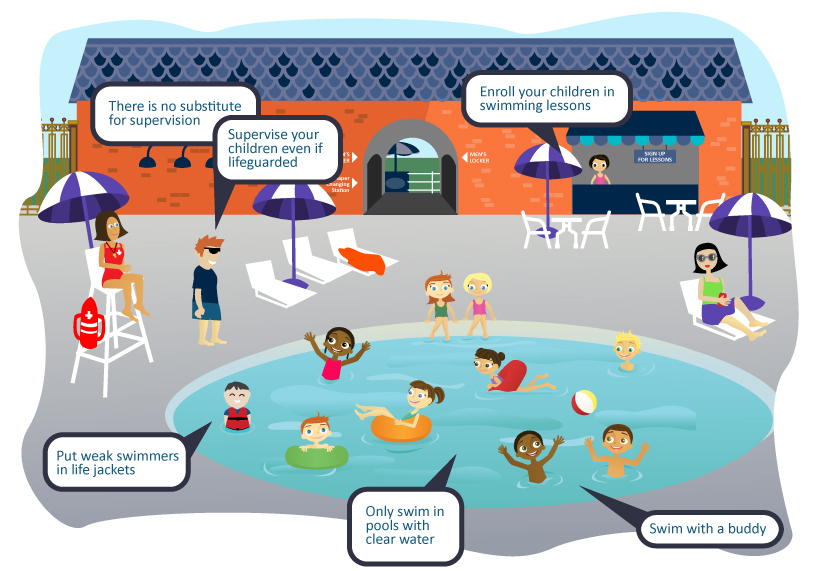
Public Pool
When it comes to drowning prevention and public pools, swim your worries away with these simple tips.
Underwater injuries and drownings happen quickly, especially when they involve children. Be alert to these hazards and how to prevent them.
Always watch children in or around the water. There is no substitute for supervision. Put weak swimmers in life jackets and be prepared for an emergency by learning CPR and keeping a phone with you. To prevent a child being trapped underwater in the pool's suction drain, teach swimmers not to play near them. To view the related fact sheet, click here.
Recreational Water Illness
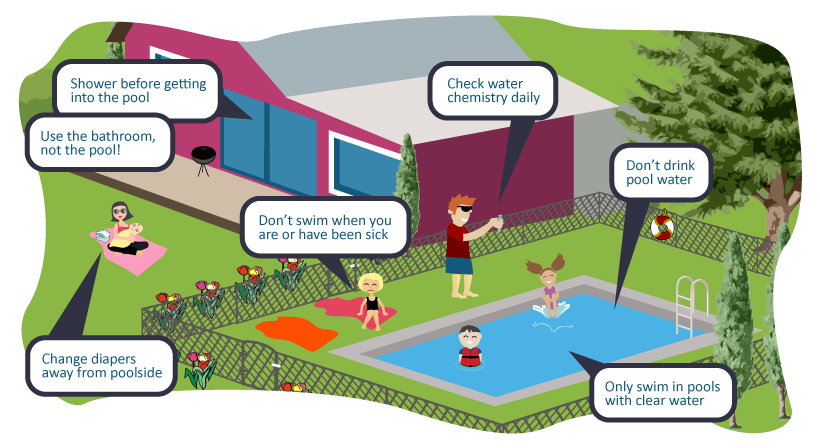
Private Pool
'Pee' and 'Poop'...they're not meant for your pool, or any pool you visit. Do your part to prevent illness, keep your germs to yourself!
Swallowing water that is contaminated with germs can cause diarrhea, as well as a variety of infections, including those that affect the stomach, skin, ear, lungs and eyes.
Do yourself and your loved ones a favor and don't drink the pool water. Do everyone else a favor by staying out of the water when ill. Oh, and shower with soap before getting into the pool and use the bathroom for pee and poop.
To view the related fact sheet, click here.
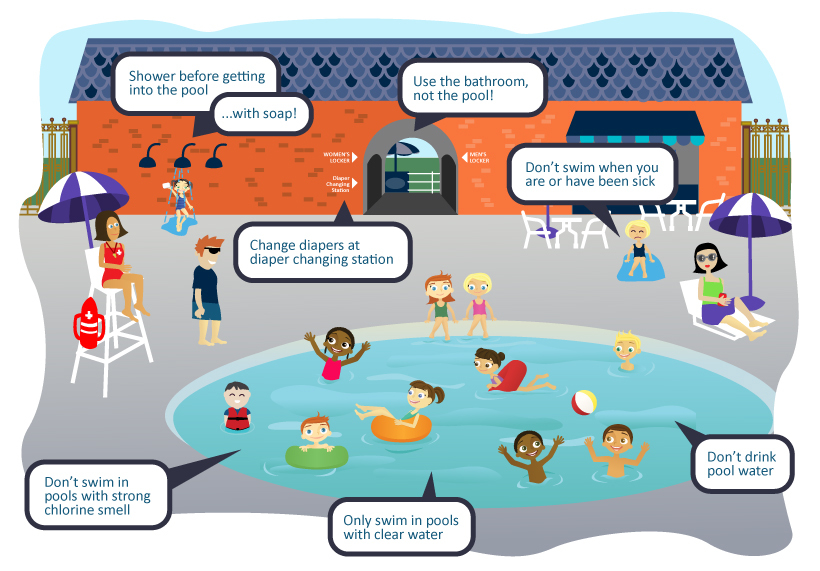
Public Pool
Yup, we're talking 'pee' and 'poop' in the pool. Learn how you and your loved ones can take an active role in preventing the spread of germs and staying healthy every time you swim.
When germs or chemicals in a pool make someone sick, it's called a recreational water illness (RWI). Do your part to prevent RWIs by taking the steps shown above. Stay out of the water when ill and shower with soap before getting into the pool. If you're thirsty, don't drink the pool water, and if you have to pee or poop, don't do it in the pool!
To view the related fact sheet, click here.

